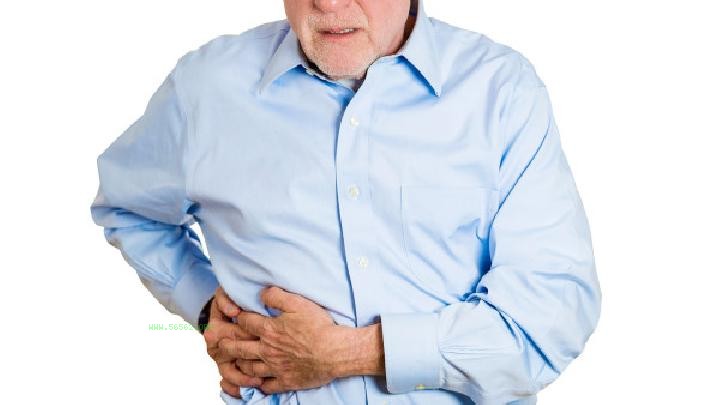During the Spring Festival, it is definitely necessary to indulge in eating and drinking at home in addition to the festive atmosphere. Eating too much greasy food, it is important to pay attention to stomach health after the holiday! Here, the editor will introduce how to protect and nourish the stomach after the holiday.
It is recommended to pair meat and vegetables.
During festivals, big fish, big meat, and some high-fat, high protein foods are essential. Most people will experience excessive fat intake, causing gastrointestinal overload and easily leading to high blood lipids.
It is recommended that there should not be too much meat and livestock, and the main food should not be too little. Bean products and dairy products are indispensable, and green leafy vegetables should be included. The main staple food should also be grains and coarse grains, with appropriate increases in ingredients such as oats and corn. Drink more Congee and soup. These soup, soup and water have a good role in clearing the fire. You can also eat some delicious and digestible food. As the saying goes, "It's delicious but dumplings". Dumplings are made of wheat flour, rich in fiber, and the stuffing contains a variety of vegetables, such as mushrooms, agaric, leeks, Chinese cabbage, winter melon, carrots, tomatoes, bean sprouts, etc. The cooking method uses boiling and steaming, which naturally reduces oil and is easy to digest.
Diet should be controlled.
The activity of the human digestive organs follows a certain pattern. If one eats too much or drinks too much, more digestive fluids are needed for digestion. Uncontrolled eating and overeating can make gastrointestinal motility difficult, affecting normal digestive function. In severe cases, it can lead to acute pancreatitis, gastroenteritis, and gastrointestinal ulcers. Therefore, when eating during holidays, it is important to avoid consuming too much of the same type of food. In addition, during the holiday season, there is an abundance of dried and fresh fruits, which increases the intake. The intake of various foods is greater than that of regular meals. It is recommended to eat three meals without feeling hungry and avoid overeating or being overly complex, which may lead to weight gain after the holiday.
Light food with coarse grains
After each dinner party, it is best to add corn, oats, and other ingredients in moderation to three meals a day, and pay attention to increasing the proportion of dark or green vegetables consumed. At the same time, drink more Congee and soup, of which millet porridge is the most nutritious. Of course, it is easy to get hungry just by eating coarse grains. It is better to have some delicious and digestive food. As the saying goes, "dumplings are not as delicious as dumplings." The dumpling skin rolled out from wheat flour contains rich fiber, and the filling contains various vegetables. In addition, cooking techniques such as steaming and boiling are used, so there is no need to worry about oil and fat. It is a win-win situation.
Green vegetables supplement fiber
A sumptuous dinner party seems to have all kinds of dishes, which can meet the various nutrients needed by the body. In fact, dietary fiber is slowly lost during the process of chewing big fish and meat. Many people experience constipation or difficulty excreting after attending a dinner party, which is due to insufficient intake of dietary fiber. So it is important to eat more fresh vegetables and less meat to supplement sufficient fiber.
Eating less
It is normal to have a meal together, and the banquet is often very sumptuous. The sumptuous dishes and mutual concessions often make people have a strong appetite and "overeat". If you overeat, it can easily cause gastrointestinal discomfort and even digestive system diseases, and it is also easy to accumulate fat due to eating too much greasy food that cannot be digested! So the best prevention method is self-restraint.
Do not eat fruits immediately after a meal
Eating fruits immediately after a meal is very harmful to one's health because it takes 1-2 hours for food to be digested and slowly excreted after entering the gastrointestinal tract. Eating fruits immediately after a meal can cause blockage in the stomach by the first food eaten. Fructose in fruits cannot enter the intestines in a timely manner, leading to fermentation in the stomach and the production of organic acids, causing bloating and diarrhea. Over time, this can lead to digestive dysfunction and disease. So, even if you really want to eat fruit, you must wait for one or two hours after meals.
Eating fruits immediately after a meal can cause blockage in the stomach by the first food eaten. Fructose in fruits cannot enter the intestines in a timely manner, leading to fermentation in the stomach and the production of organic acids, causing bloating and diarrhea. Over time, this can lead to digestive dysfunction and disease. So, even if you really want to eat fruit, you must wait for one or two hours after meals.




Comments (0)
Leave a Comment
No comments yet
Be the first to share your thoughts!